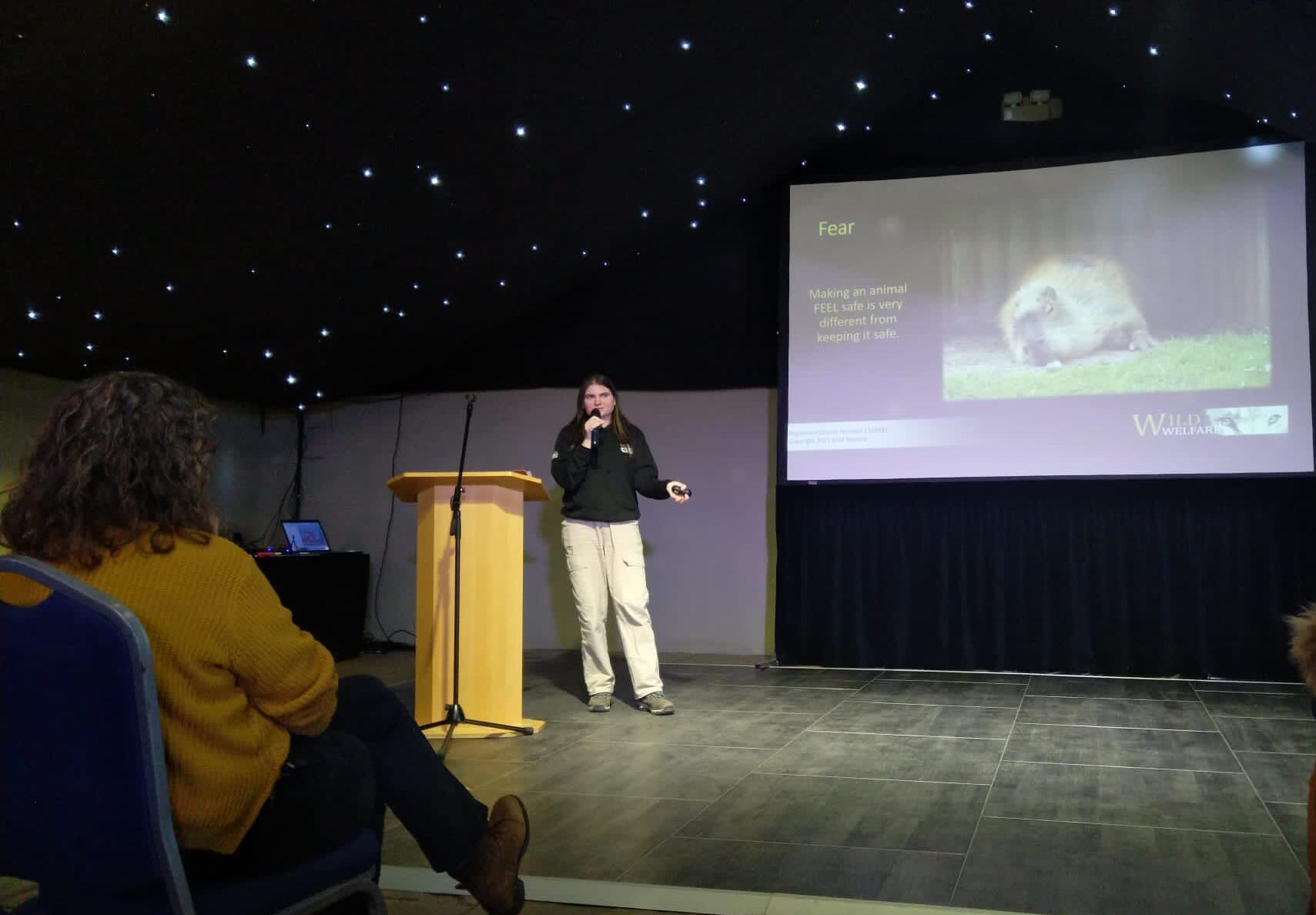Wild Welfare at the ABWAK Symposium 2023
Wild Welfare’s Animal Welfare Field Manager, Sarah Bonser-Blake, delivered a presentation titled “Animal Care and Welfare – What’s the Difference?” at the annual ABWAK (Association of British and Irish Wild Animal Keepers) symposium earlier this month.
ABWAK is a membership organisation for those involved in the care and conservation of wild animals. Nearly 250 people attended the 2-day symposium hosted by Yorkshire Wildlife Park, bringing animal care professionals, academics and students together to discuss the latest best practices in captive animal care and welfare.
Sarah’s presentation was one of 22 talks given during the congress, with topics ranging from big cats with cavities to chough conservation. Sarah’s presentation highlighted the nuances between the practical activities that underpin the care of captive animals and the welfare an animal experiences i.e. how an animal is feeling, or coping in their captive environment.
The talk looked at attitudes towards animal welfare throughout history, for example, the notion that eating, breeding and longevity are all indicators of good welfare. In fact, these are not accurate measures of welfare; they do not consider the psychological wellbeing of the animal, nor their actual experiences of their captive environment. An animal in good physical health may still have poor mental health if other needs are not being met.
Sarah gave up-to-date examples of the ways in which we can make animals feel safe in their environment to optimise welfare, rather than stopping at meeting their care needs. Good animal care provides an animal with control over their environment, including opportunities for comfort, pleasure and interest.
Sarah said, “It was an energising experience to talk to so many people who were incredibly responsive to what I had to say. Ensuring exemplary welfare standards for wild animals under human care can be something that is assumed rather than actioned, so it was an excellent opportunity to examine and discuss the ways in which small changes can make a big difference.”
The talk delivered by Sarah was well received. Many individuals commented on the need to understand the differences between the two terms “care” and “welfare”, and to stay up to date on modern animal welfare science models such as the Five Domains Model which identifies opportunities to provide animals with positive welfare experiences beyond meeting their functional needs. The Model also examines interactions likely to generate negative welfare experiences, such as aversive training techniques.
“It was a great opportunity to share Wild Welfare’s vision, mission and values with an enthusiastic audience,” Sarah says, “and it felt fitting to present at Yorkshire Wildlife Park, where I have worked in the past. We later worked with the Park to rehome four Hokkaido brown bears from Ainu Museum in Japan into their care.”
By providing training and opening discussions with those interested and involved with captive animal care, Wild Welfare aims to inform and influence animal care activities, bringing welfare to the forefront of decision-making in captive wildlife facilities such as zoos, aquariums and sanctuaries.
ENDS
Notes to Editors
For more information or interview requests please contact Wild Welfare on communications@wildwelfare.org
Wild Welfare is a global organisation committed to improving animal welfare for captive wild animals. By uniting the world’s leading zoos, zoo associations and animal welfare organisations, we build trusting partnerships that help provide long-term solutions to critical wild animal welfare issues.
Our vision is to end the suffering of captive wild animals around the world and ensure full and sustainable protection is given to all animals in human care. Find out more at wildwelfare.org. Registered charity in England (no.1165941)





